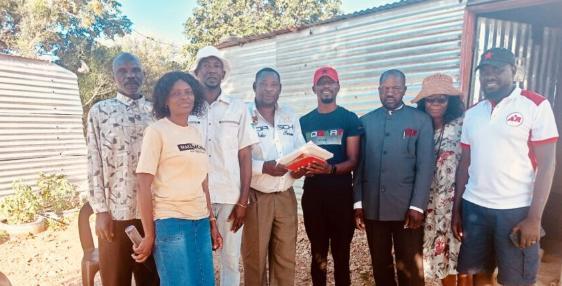Africa-Press – Namibia. The Affirmative Repositioning (AR) movement has strongly objected to the City of Windhoek’s proposed 4% increase in electricity tariffs, calling the move premature, unjustified and potentially burdensome to residents.
In a formal submission to the municipal council, AR Khomas Regional Chairperson Sem David argued that the City failed to provide sufficient data or a transparent rationale to support the proposed increase.
“We urge the municipal council to put the proposed tariff hike on hold until such time as the City of Windhoek shares the underlying data justifying the increase,” the AR statement reads.
While acknowledging the City’s efforts to address financial challenges through improved revenue collection, AR emphasised that electricity is an essential utility and any tariff adjustments should not deepen the financial strain on Windhoek residents.
“We understand that the city provides municipal services, including electricity, on a cost-recovery basis, buying electricity from NamPower and reselling it to end users.
However, we demand full transparency. What is the actual cost recovery amount, that is, the difference between the unit cost from NamPower and the selling price to consumers over the last decade?” asked AR.
They further demanded that the City disclose the commission rates paid to both major and small electricity vendors.
Sharing a similar sentiment was the social justice activist Shaun Gariseb, who voiced serious concerns about legality, fairness, and economic feasibility.
In a formal objection submitted before the deadline, which was yesterday, Gariseb, who said to represent affected consumers, residents, and ratepayers, urged the municipal council to halt the proposed increase until the ongoing legal battle between the City and the Electricity Control Board (ECB) is resolved.
“Approving this tariff hike now would amount to double jeopardy for consumers. The City is in defiance of both legal and regulatory frameworks,” Gariseb stated.
Gariseb accused the City of violating multiple provisions of the Electricity Act, including Section 29 and the ECB’s regulatory guidelines. He singled out the City’s continued practice of cutting electricity to consumers with outstanding municipal debts a practice the ECB has expressly prohibited.
“The ECB issued a directive preventing local authorities from using electricity disconnection as a tool for collecting other municipal debts. Yet, the City continues to punish residents, which is not only illegal but unethical,” he stressed.
He criticised the City’s decision to challenge the ECB in court, arguing it undermines the authority of the regulator and signals a disregard for accountability.
“The City of Windhoek has taken the ECB to court to secure special treatment, a move that threatens to dismantle the very regulatory mechanisms designed to protect consumers,” Gariseb said.
He further expressed concern over the lack of public engagement in the decision-making process and alleged that consultations between the ECB and the City have taken place behind closed doors.
“The secrecy with which these consultations have been conducted is alarming. Consumers are treated as the enemy rather than as key stakeholders,” he said.
For More News And Analysis About Namibia Follow Africa-Press






